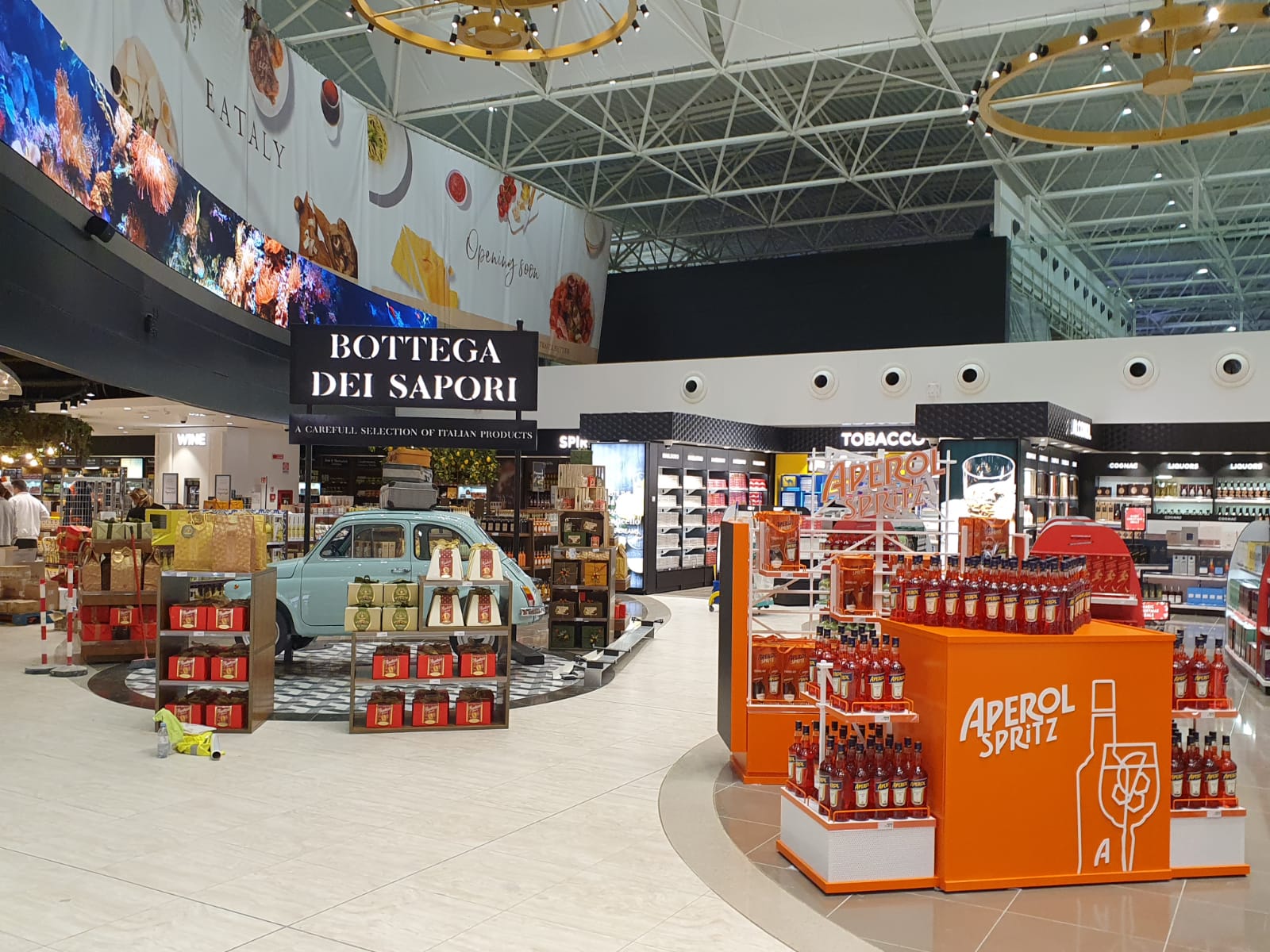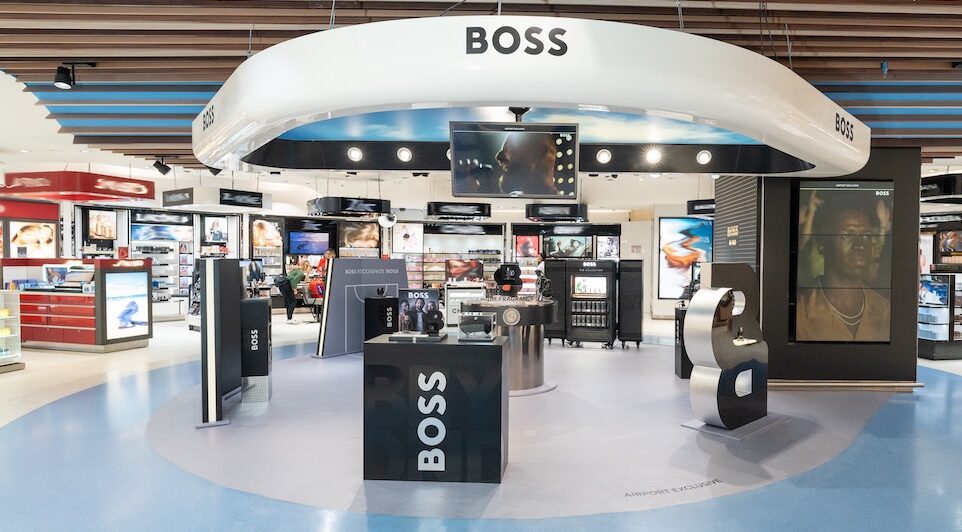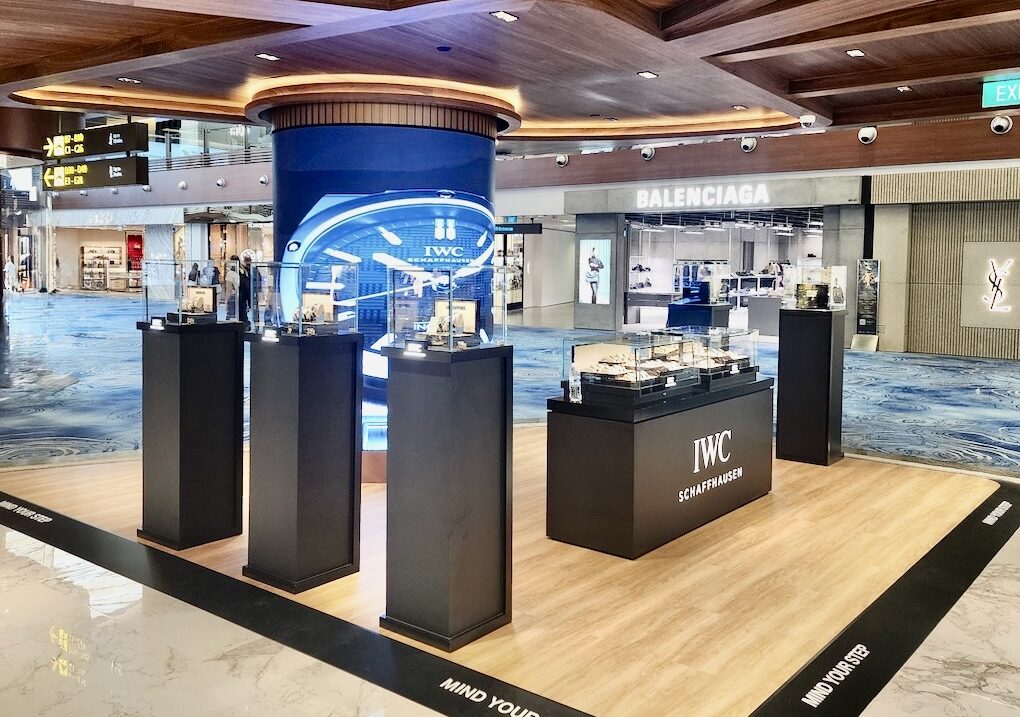FRANCE/INTERNATIONAL. “While staying consistent in our strategy, we must remain agile, responsive and willing to adapt to change. Our direction is clear: to continue creating value for our partners and memorable retail and dining experiences for travellers, through a constant drive for excellence.”
So says Frédéric Chevalier, who was named on Wednesday as Lagardère Travel Retail Chief Executive Officer, effective 1 July. He was appointed by Lagardère SA Chairman and Chief Executive Officer Arnaud Lagardère on the recommendation of Dag Rasmussen, who remains Chairman & CEO at Lagardère Travel Retail and will focus on a more strategic role at the company.
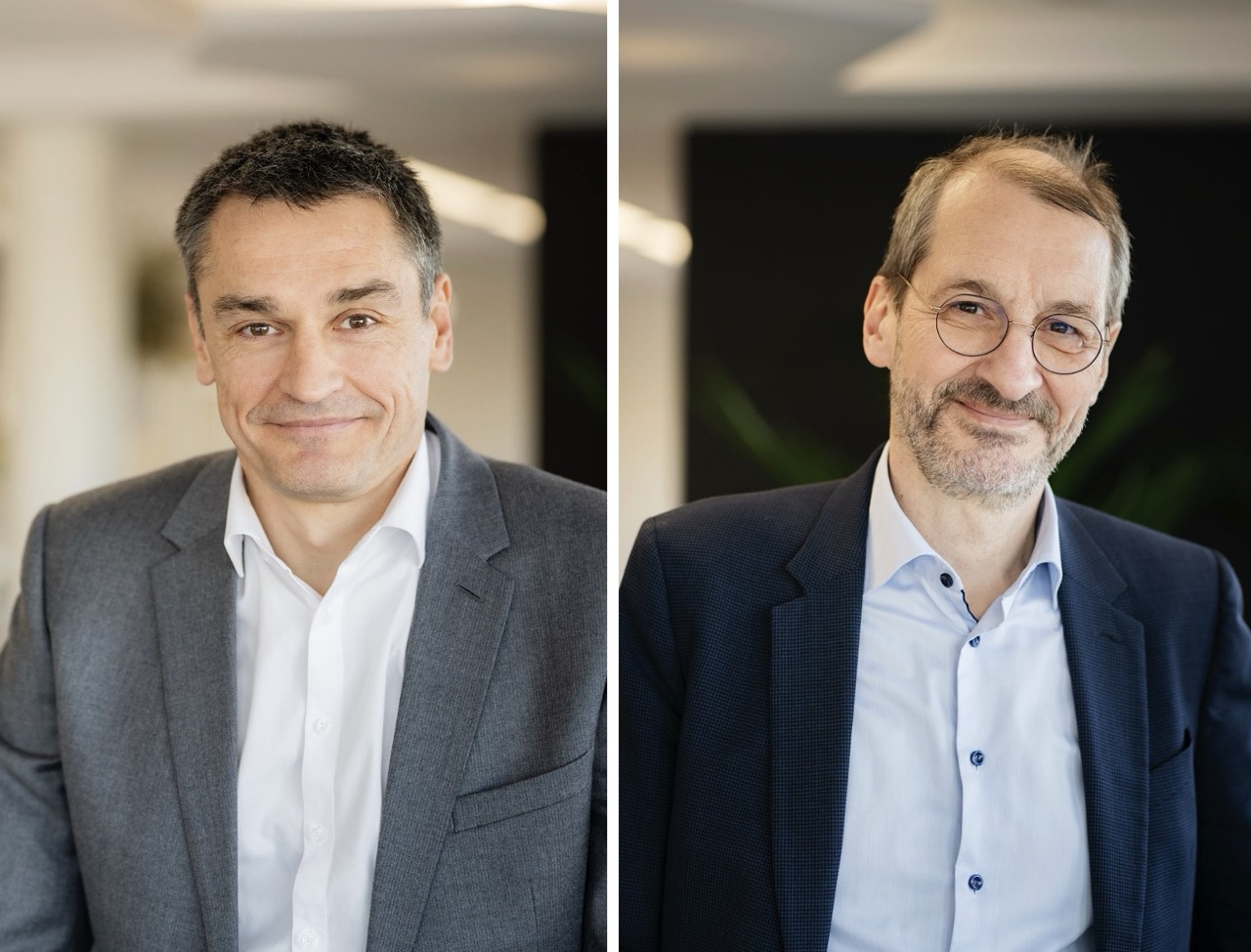
Chevalier joined Lagardère Travel Retail in 2006 and has served as Deputy CEO since July 2024. In his new role, he will work alongside Rasmussen and oversee the company’s worldwide operations, with all Executive Committee members reporting directly to him.
Lagardère Travel Retail said in a statement that its “bold, pioneering strategy” continues to deliver results. Over the past decade, revenue has almost tripled, with +16% year-on-year sales growth in 2024.
Over the past year, the travel retailer has strengthened its European footprint with key contracts at Frankfurt, Hamburg, Belfast and Nice airports, and was selected as joint-venture partner to manage core-category duty free at Amsterdam Airport Schiphol alongside Schiphol Group.
Other openings in the past year across its three business lines – duty free & luxury, travel essentials and food & beverage – have included stores and restaurants at Auckland, Lima, Cotonou, Tirana, Sydney, Antalya, Kigali, Yaoundé and more.
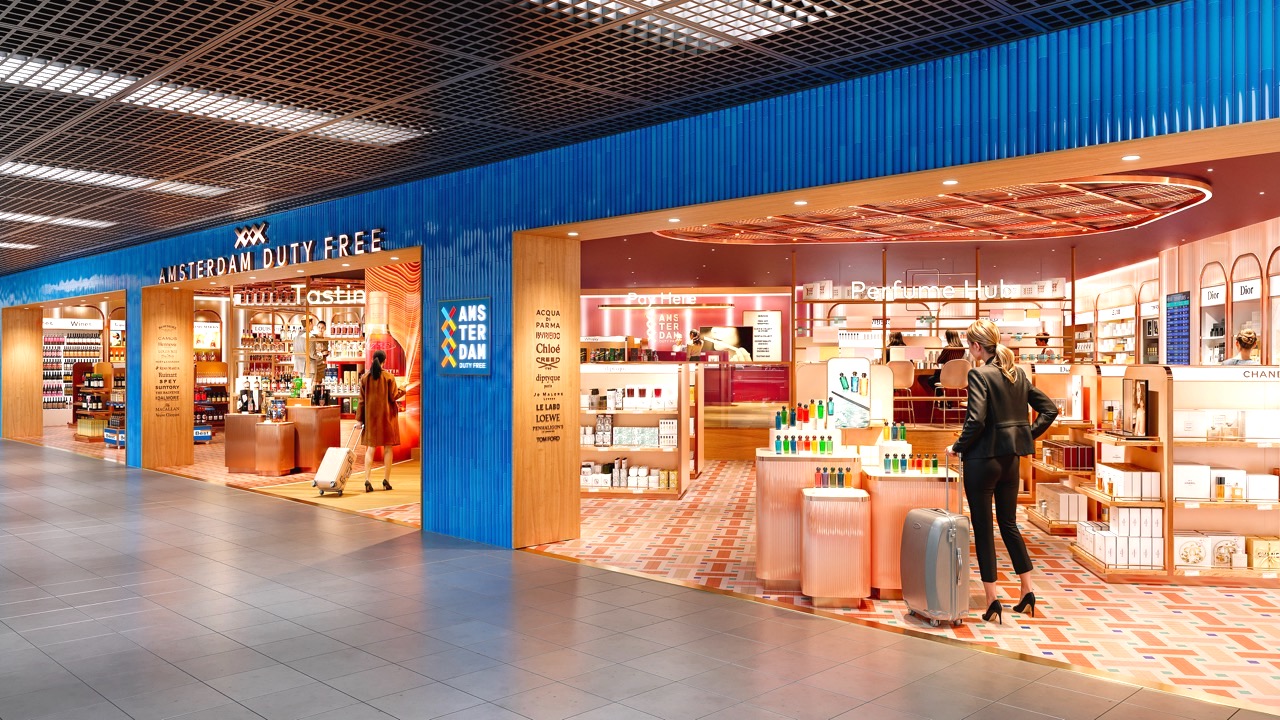
This builds on 14 years of strong growth under Rasmussen’s leadership. When he became CEO & Chairman at what was then Lagardère Services in 2011, travel retail revenue was €2.3 billion. Total sales revenue across its three business lines in 2024 amounted to €7.6 billion —more than tripling through a blend of strong organic growth and acquisitions.
In the interview below, conducted in Paris shortly before the official announcement, Dag Rasmussen and Frédéric Chevalier speak to Dermot Davitt about their respective new roles, planning the transition and business continuity amid market change.
The Moodie Davitt Report: Dag, tell us please about your decision to take a step back and how you have planned for this transition to Frédéric’s leadership?
Dag Rasmussen (DR): The move has been in the making for a year and the structure from 1 July aligns with the shareholders’ [principally Vivendi-led parent Lagardère SA] desire for continuity. They didn’t want a major change and they had seen the company’s positive evolution of recent years, but I am also turning 65 in July and the status quo was not an option for me.
It is a good time for change as you should not be CEO for too long either. I spent 14 years in the role and it is good to have a new dynamic. I really believe that change is movement and movement is progress.
I feel I have the same energy but sometimes you need someone to come with new ideas, challenge what has been done and even improve on it.
Frédéric’s management style will be different but it is good to have evolution here too.
With Frédéric we have full strategic alignment, because we did this together, and he has not only been a support to me but is also someone who constantly challenges, which I appreciate.
We rely on Frédéric to take Lagardère Travel Retail to another level and make it even more the benchmark of the industry.
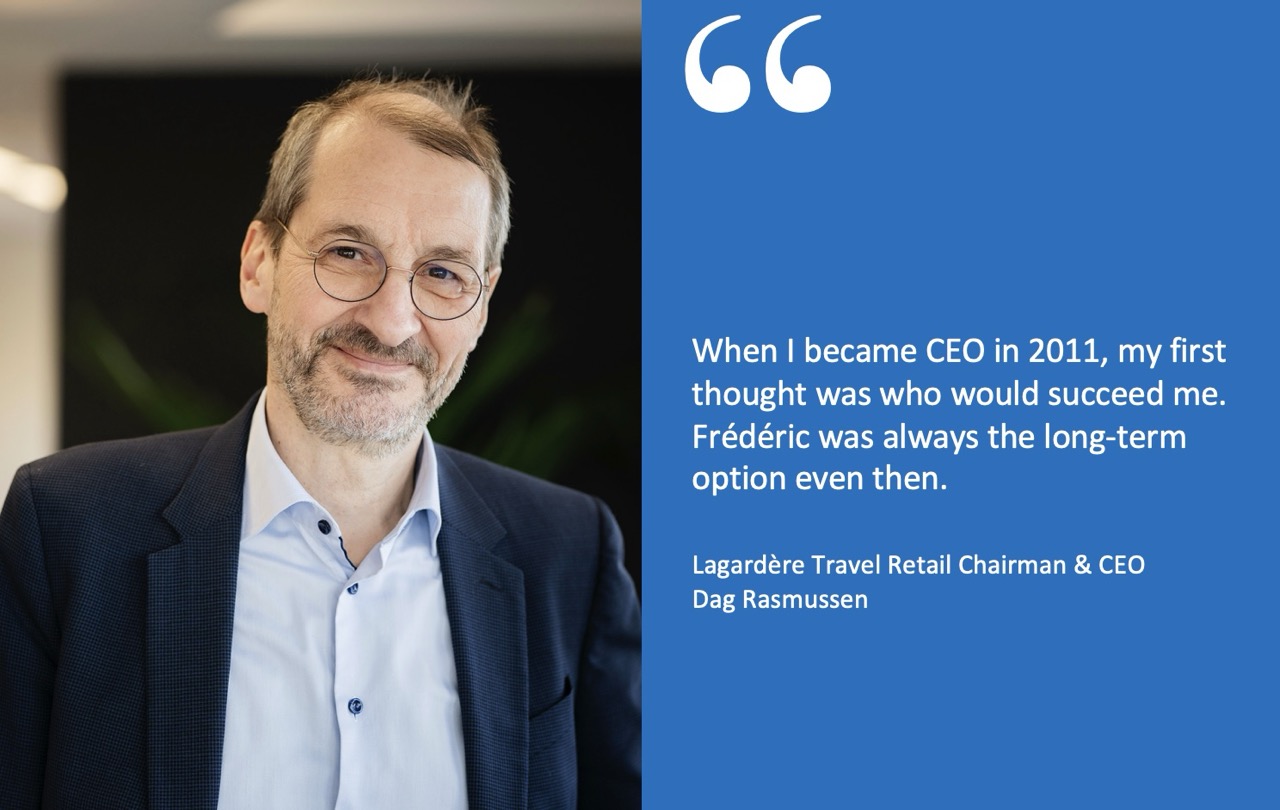
How do you see your role from 1 July where you remain as Chairman & CEO?
DR: I remain as Chairman and CEO but with fewer executive functions. It will be a role that, depending on the strategy, helps prepare the company for all kind of options that are attractive for the shareholder, for the industry and for the people within the company.
I will give my experience, even going to meet landlords where it makes sense for us. It will be hands-on when needed but that will be at Frédéric’s initiative.
Even from 1 July, I will not take as much of an executive role. For example I will not take part in the weekly Executive Committee meetings but will take part in monthly meetings, which are focused more on long-term strategy and planning.
I’m not saying it will be easy all the time. When you have been in an executive position for so long there may be times when my advice may be more as executive than Chairman, but I know Frédéric will push back if he feels it necessary.
Frédéric Chevalier (FC): No doubt we will find our way and it will be made easier by the fact that there is absolutely no doubt on each side about how we move forward.
This move is well coordinated and desired by both of us. It is a progressive shift and a transition that is very much supported and welcomed by us both.
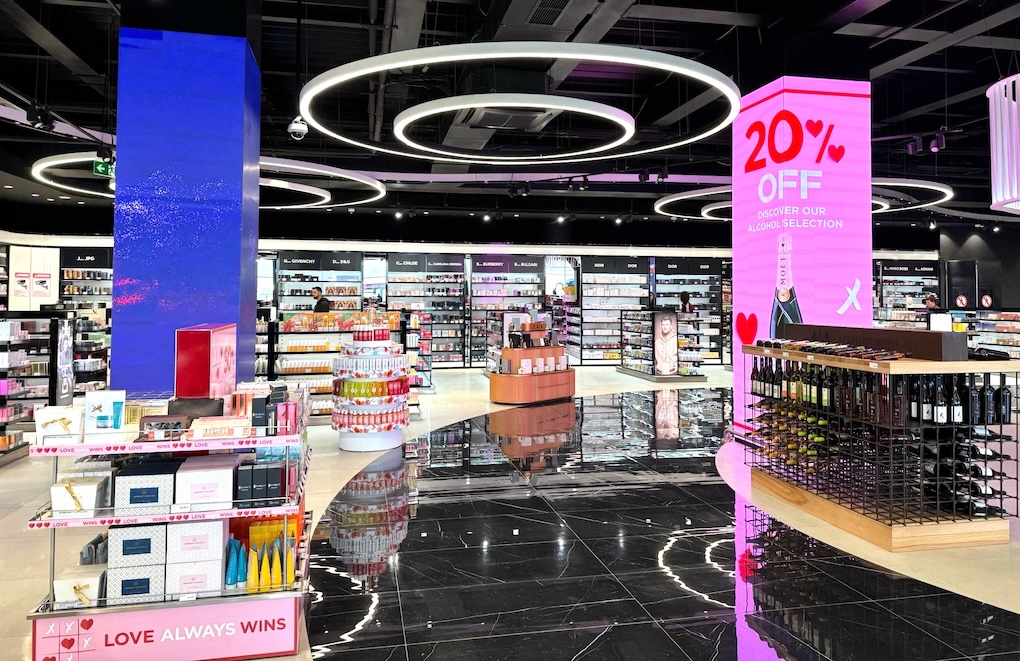
Dag, you have taken a long-term view of this move. Can you elaborate on this and about what makes Frédéric the ideal candidate?
DR: When I became CEO in 2011, my first thought was who would succeed me. Frédéric was always the long-term option for me even then.
I made the strong recommendation to the shareholders for Frédéric to take on the role, though of course it their decision. It is fully supported by the Executive Committee and management team.
One of the risks of dramatic change, for instance hiring an external candidate, is discontinuity. We speak with investors who value continuity, the way the company has been managed, and who understood that managerial evolution can bring continuity. It will not be total continuity because Frédéric has to bring his point of difference. But it won’t be a revolutionary or an abrupt change.
There is so much detail that goes into managing Lagardère Travel Retail, from tender bids to optimising the business and adding value to shareholders. That is one reason why an external candidate was never my recommendation.
In my view also, you need an Executive Committee that is not too operational and detail-driven but at the same time is not too distant. There is a balance. We need to keep the right level strategically.
And the risk with somebody completely new who does not know the business is finding that right level. Because we have a strong culture, I think we can admit that it’s not always easy for third parties to join either.
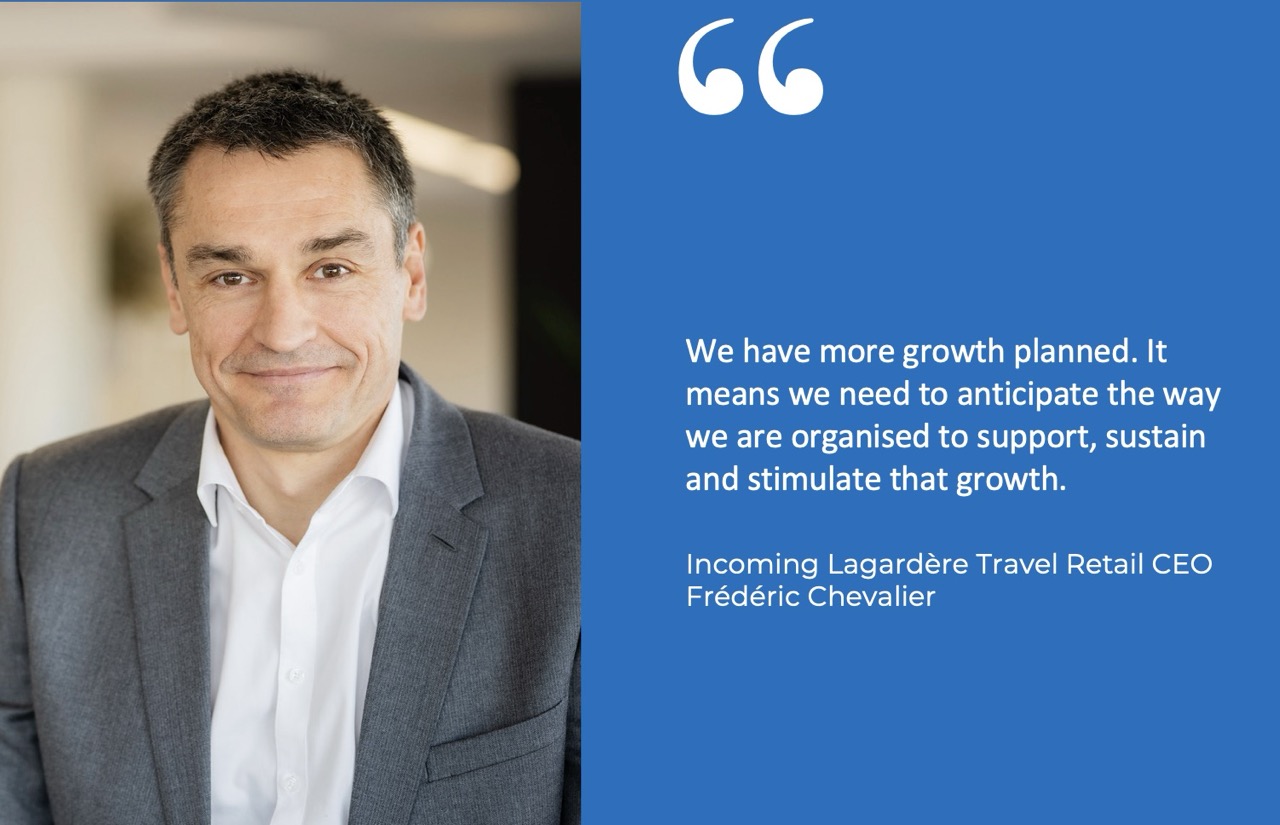
FC: A very strong company culture is an asset, but it’s also a reality. You don’t change your DNA. And from that standpoint, it’s easier for me or anybody else internally that has grown up and is educated in the company culture and in travel retail to ensure continuity.
The messaging to our teams is also important. We want to encourage a balance between fresh air in the system, people who bring benchmarks from other industries, alongside the culture and the identity from within the company.
Dag, what does Frédéric bring to the role and how does he complement what you have built?
DR: I am impressed by his intelligence and his understanding of the issues, and he will bring a new level of energy – even though I feel energetic still.
Frédéric is somebody who likes to be challenged, who listens to challenges and who evolves his thinking based on the challenges. I think that is extremely important.
If I look at how I take decisions, sometimes I can be too high level. I’m thankful to have him and the wider team that says this or that way forward may be more realistic.
Also, the mere fact that it is somebody else is also good. We are not the same, but we do have a corridor of common vision, thoughts and ambition.
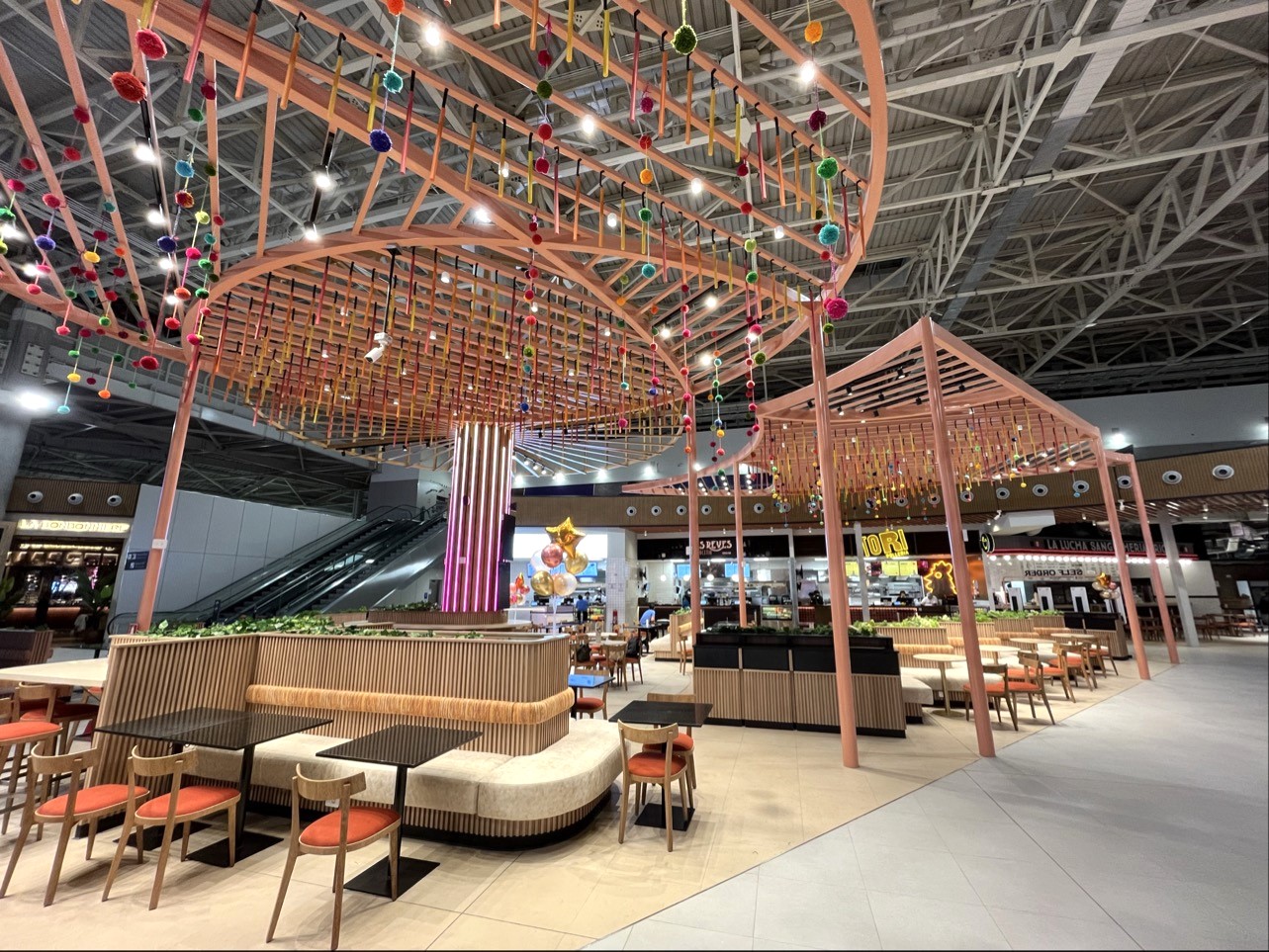
Frédéric, what will you bring to the role and how will your style will differ from Dag’s?
FC: First I will tell you what will not change. Dag and I have, from the very start, a very close alignment on strategy and its execution.
Look at how far we have come. It is 13 years (June 2012) since we held our first Investor Day for travel retail here in Paris, at which you also took part and helped chair, Dermot.
Interestingly, when you read the document we prepared at that time, we put forward an ambition for +10% annual sales growth from that point. And we have achieved that. The direction we outlined that day has been followed with only a few adjustments as challenges have come along.
The direction has been very clear in the way we execute with a focus on our strategy, on the quality of the relationships with the partners and the quality of execution in the stores, with the need for differentiation at the airports much clearer these days.
Also, how we work with our many markets is also very aligned. At global level, we have a rule of steering, a rule of controlling, but also a rule of assisting and facilitating for over a decade that has delivered great results, led by empowering local teams to make things happen.
It is a crucial aspect that should bring reassurance to our partners, whether brands or airports.
I like when things are clearly said and clearly done. We have a focus on delivering what we say. Externally we have been good at doing it. Internally, I believe, given the size of the group and the number of projects we are running, we probably need more discipline to make sure we stick to what we have to do. That is simply a result of our success.
On style, we are who we are and it’s important to stick to who you are, while making adjustments and reacting as needed.

Will the company structure and how you devolve power to local teams remain as today? Any other organisational changes?
FC: We are a different scale of company compared to when Dag took on the leadership in 2011.
What has been the success of our past decade possibly needs to be adjusted and adapted to deliver success in the decade ahead.
One thing is clear to me: because of the exposure I have had in my role I am closer to the airport partners in general. I was supervising directly something like 15 or 16 countries until a year ago, meaning I have had that direct relationship with the country CEOs and the airports in those countries. But that is natural, as with 14 years in a CEO role you get some distance. Now that I jump into a higher position, progressively this distance will happen too. But many of those great relationships will remain and Dag also has great relationships he can leverage.
Importantly also, in our structure today are our regional CEOs who manage these relationships. I will still have a pretty good connection with all those partners, and I know that that’s to the benefit of everybody.
DR: For example, with the Amsterdam Schiphol project I let Frédéric manage it completely and I hardly intervened.
FC: The other thing is the evolution of the senior leadership team. We discuss this often due to the pace of growth we have had. When you had +16% more turnover in 2024 compared to 2023, you need more capable people to manage that.
And we have more growth planned. It means we need to anticipate the way we are organised to support, sustain and stimulate that growth.
The second part is that you need fresh air irrespective of the growth, and we aim to promote younger people, ideally from within, who can enrich the human capital of our group. We have had a lot of internal promotion at middle and senior management levels and I will continue to encourage that.
We are permanently evolving the team and its composition to adjust for the future. But that is a good issue, to be able to grow teams, grow in size and grow in giving more responsibility. That’s the reward of our growth.
For the future we have plenty of organisational ideas in relation to meeting the continuing challenges of travel retail. We need to invest in the way we work, to maintain an edge in the way we run the business.
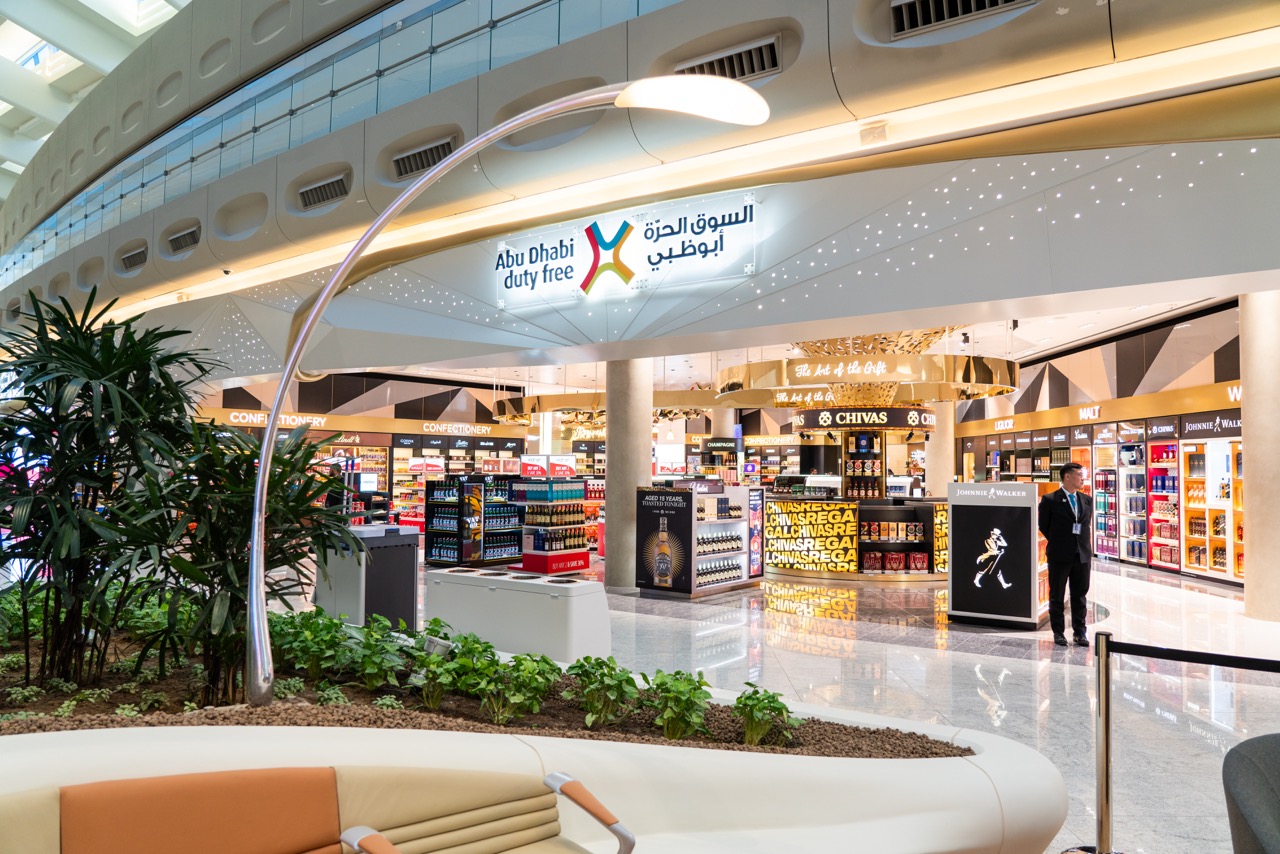
Frédéric, at this stage how do you articulate your ambitions to continue the remarkable growth wave the company has ridden since 2011, and how do you see both acquisitions and organic growth contributing in future?
FC: We have our ambitions of course. But more than size, absolute sales or number of flags on the map, we want to be the partner chosen for the quality of our operations and executions by airports, JV partners and brands. And we want our stores to be chosen as the best by customers too.
I believe it’s critical to be the best, and by being the best, we can become the biggest. But the objective must be to be the best.
Dag, what does the Lagardère Travel Retail health check look like to you today as this leadership transition takes shape?
DR: If you had told me 14 years ago we would be in this position, with this size of business, operating at this quality level, I would have signed up straight away.
Back then we told investors, if we want to stay in this industry, we need to grow. The group gave us what was needed at the time but we had to do it to have a future.
Today we generate enough free cash flow to have our own growth, so we don’t need big acquisitions. However, we have had success in integrating these acquisitions and that adds to our credibility. Also, as managers we want to grow. To have a motivated team, you need to have ambitions, and we have this ambition.
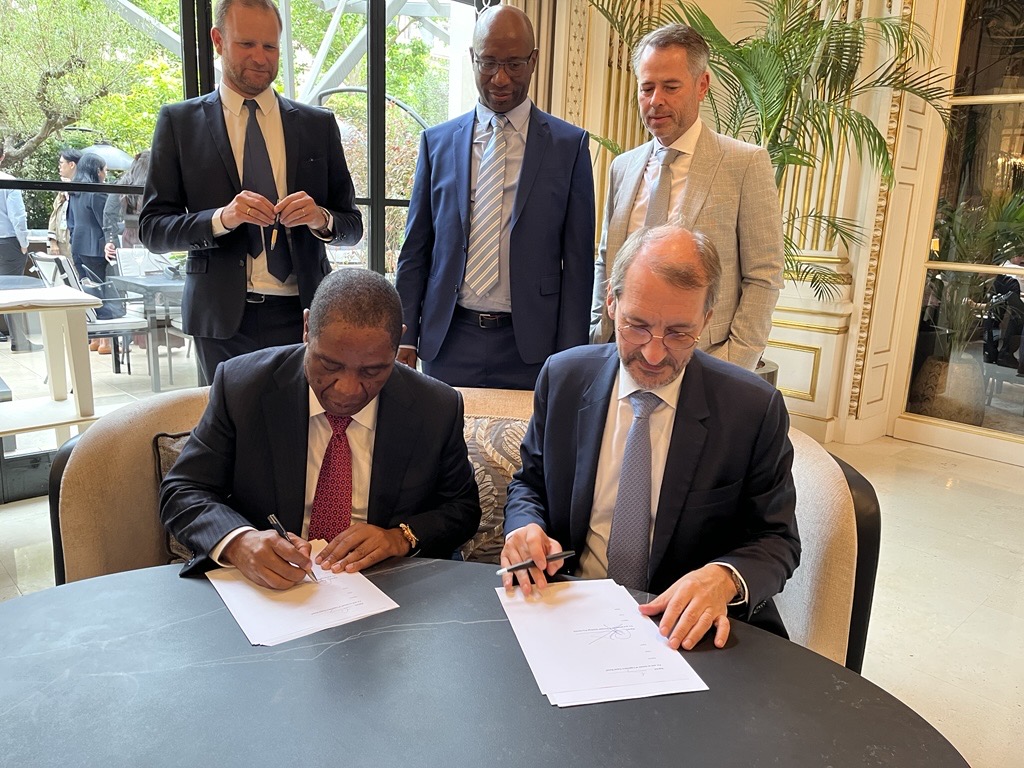
How do you see the growth strategy, Frédéric, in light of how far the company has come?
FC: While the strategy we outlined 13 years ago to investors has taken shape as we hoped, strategy is still a permanent case of do, redo, undo. Acquisitions were part of that at the time.
That being said, what we believe in 2025, looking at the market conditions, the competition, the way the industry goes today, we believe there is no need for big acquisitions. We don’t rule it out and if there is a case, of course we will do it.
If I look at the industry rankings from 2011/2012, all the big players that are still alive today more or less followed the same path that we followed, namely active growth in the industry. And some others basically don’t exist any more. In 2011 therefore the need for growth was fundamental.
The convergence of channels was also pioneered by Lagardère Travel Retail across what you now call your three business lines, duty free, travel essentials and food & beverage.
DR: Yes we had our challenges on that, because we were the only ones doing it, but now it’s obviously the industry standard.
FC: The vast majority of our countries operate two, if not three business lines today. A decade ago we made a very big transformation, splitting operations in the countries with global teams sitting in Paris providing commercial support, operational support and logistics support.
That was a big change that created a lot of internal debate about the role of central and the role of local. In the world of retail, there is tension between the two. Those tensions remain but this is intentional and we need to maintain that.
{Main story continues following the panel below}
Looking back, and forwardDag Rasmussen reflects on highlights from his time as Chairman & CEO that resonate most as the CEO transition takes shape. He says: “If we take the most interesting time, COVID was right up there. It was extremely difficult but also extremely interesting, both because we saw the strength of our team, of our organisation with the support our shareholders, and it was fascinating to make things happen from one day to the other. “We changed our KPIs, which many didn’t do. I spoke with some retailers in France who said their KPI remained sales. For us, that never made sense as we had no customers. So it was flow through and our ability to make our costs variable. This was conceived, rationalised and spread across 40 countries in one week in April 2020.”
Beyond this turbulent period, making a step change in scale with the acquisition of ADR Retail in Rome in 2012 (Rome Fiumicino pictured above in 2021) stands out as a jumping off point for a period of consolidation across retail and dining. Rasmussen also notes how the Lagardère Travel Retail name has become the consistent company identity across business lines and territories, ten years after coming into existence, following periods as Lagardère Services and later as LS travel retail. He adds: “One other thing stands out that gives us great pride. Over the past 14 years, our average sales growth was +10% a year, but two-thirds of this was organic. That comes down to finding the additional Dollar or Euro or within the existing business. “To be a success, you first must look into how you can generate more from your existing contract at any given airport. “When we saw that every year we were top of the industry in organic growth, that became a source of pride each time. It’s part of our adrenaline rush, to be better than yesterday and to prepare tomorrow to be better than today.” Frédéric Chevalier adds: “That is what I would like to push for as we pursue the next dream. Of course, if we can do acquisitions or gain new tenders, we are happy, but pushing for this performance in quality is quite a major thing. “That is something that is immensely rewarding. It is rewarding for the business development team that aims high with accuracy, it’s immensely rewarding for the commercial teams that build the range and the stores, as it is for the operational teams that keep the stores at their best every day and every night, so we can make that continuous improvement. We also ask Rasmussen if he has any regrets about opportunities missed or not seized quickly enough? “I am not a man for regrets,” he says, “but if there was one thing I look back at from my time, I would have loved to acquire World Duty Free when it was for sale, and then Autogrill. [Dufry, now Avolta, acquired a controlling 50.1% stake in World Duty Free from Benetton family-controlled Edizione in August 2015, and later acquired Autogrill, with the deal closed in early 2023.] “We just didn’t find the financing at the time. We have done many other things since, but that would have been a step change in our scale and evolution, and it would have made this dream come true even quicker.” |
More broadly, how do you view the outlook for the industry?
DR: Even when I started in 2011 you had people complaining that things were not as good as they used to be. We have always taken a completely different approach.
One, this is the best retail channel as we have the best customers. Alongside ecommerce we have grown the fastest of all retail in the past 15 years.
Also, the quality of locations we have now compared to 20 years ago is the difference between day and night.
Yes, there are headwinds, but our role is to face these headwinds. They should motivate us. During COVID we had daily Executive Committee meetings to work out how we would survive, and once we did, it was straight onto how we could come back stronger. And we did.
The point is to listen to the customers, understand the industry and be courageous enough to make choices. Don’t complain about the fact that consumers are not spending. That’s your job.
Yes there are some material risks, environment being one of them. We believe in sustainability, while at the same time recognising that humans have a need to travel. What we believe here is that we need quick action from aircraft manufacturers to decrease the CO2 impact of our industry, and then we can surf on the wave of travel.
FC: There is also geopolitical risk, that is obvious. China is a challenge today; we have seen Russians disappearing from our business related to the war in Ukraine; we have seen Dollar and other currency fluctuations that have had an impact, or the rise and decline of Japanese travellers in the past.
What is key is that the industry accepts this and creates flexibility in the way it operates. If you adjust, the industry is large and rich enough to thrive whatever happens.
If you are operating at a European airport and your focus is solely on the Chinese traveller today, that is your failure. But if you have the agility and the flexibility to react, you will succeed.
One thing on which our industry can compare favourably with ecommerce is the level of margin, even if we all say it’s not enough.
So if one day the business shrinks because of headwinds that we cannot compensate by commercial actions, there is still margin in the industry that allows us to survive. The question is how do we split the cake? But for sure, the cake is big enough.
DR: And even if you have some categories that are challenged, as we do today, there are still opportunities. We set the objective of 30% local products in our duty-free stores. This is additional, plus it helps grow the rest of the categories as well.
FC: Yes, there are also plenty of categories that today we do not sell in our stores simply because of the rent mechanism in the airport industry. It is limiting.
If the margin is below the rent, we are not going to include that product under current terms. But because we have the best locations, the best clients and because the clients have time and money, in general, we have the opportunity to sell more.
Why would customers only be interested in buying perfume or whisky in an airport? It’s not only about price as we sell liquor and beauty intra-EU without any tax advantage and it’s a good business.
High Street retail is operating, in general, at a level of margin way below ours. If we can do billions in sales at a good double-digit margin, why not do it and share the profit in a way that makes sense?
With that in mind, how do you see the conversations with airports progressing about sharing models, whether it’s profit or joint venture or other ways forward?
FC: There is growing traction but it takes time. We are in an industry of contracts so there is by nature some inertia in how fast it can take shape.
DR: Profit sharing remains the only model where we haven’t seen any drawbacks. We have worked on it and from what we see it is all upside.
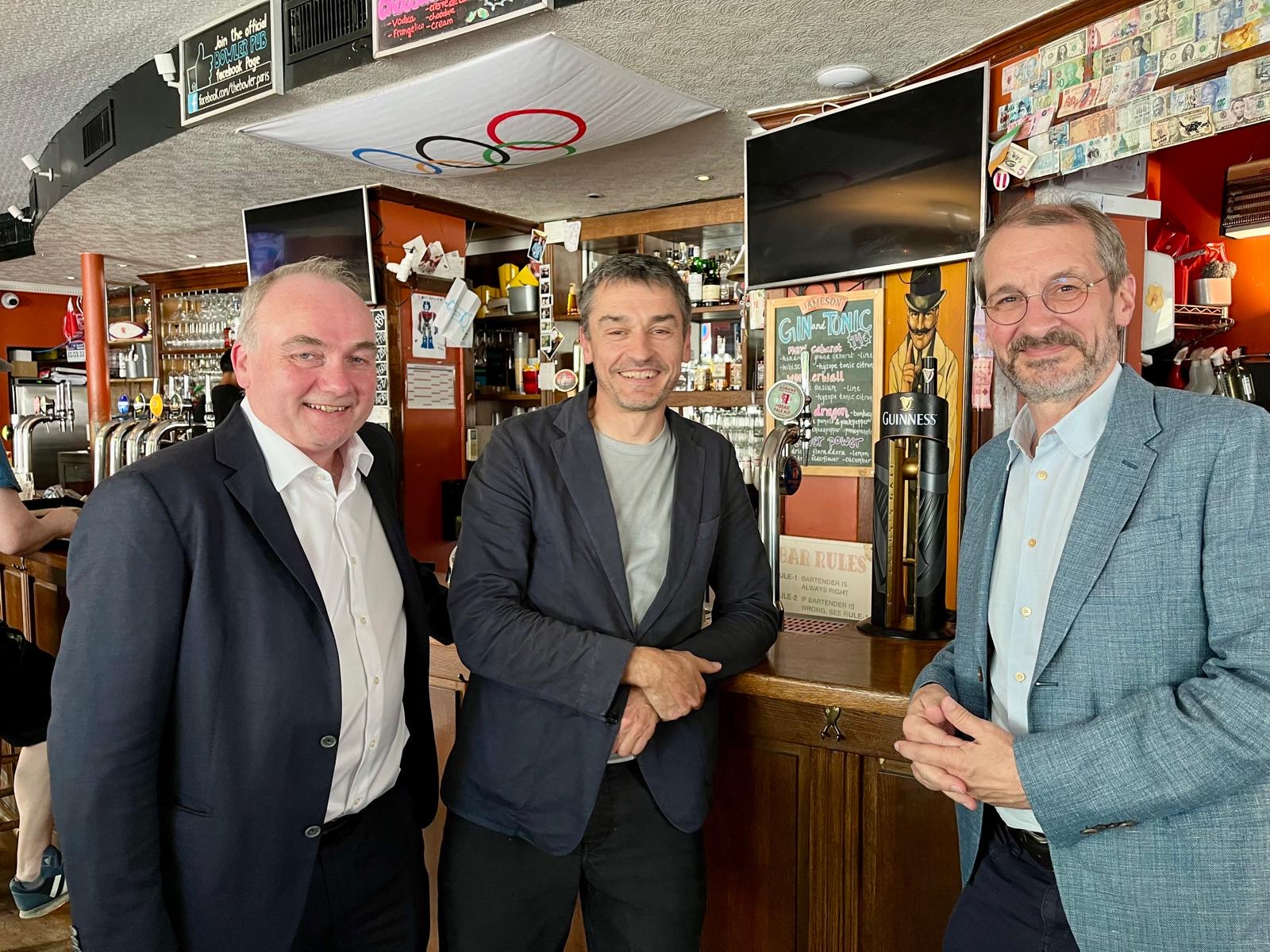
A personal question, Dag, as you make this change – what other ambitions do you want to fulfil?
DR: First, I love Lagardère Travel Retail. As long as I remain in the picture, I am happy, and when either Frédéric or the shareholder thinks I should, I will step out without any issue.
At a personal level, I want to take some time courses in history of art. I will take some cooking lessons and as I love to travel, I will continue to do that too. I may also be open to some board positions where these interest me.
Finally, to each of you, what are your key messages to the industry community about this transition from 1 July, and what does it say about Lagardère Travel Retail present and future?
DR: This evolution is a testament of our success as a team. It is continuing a great dynamic.
We are all amazed and impressed by what we have been able to do as a global team. This move shows that our shareholders and our teams believe this is the right way forward, and the strategy will be maintained but with change along the way where change is needed.
And as I often said, what I wish for Frédéric is to have a Frédéric Chevalier working for him, because it’s really important to grow people.
FC: This decision by the shareholder and recommended by Dag acknowledges the successes we have had so far and shows consistency and alignment.
We will see strategic continuity and any changes will be made to adjust to the new scale of the group as well as the industry challenges. Those changes will be the result of looking at the trend and being prepared for additional growth, which we will definitely push for.
The industry too will change but travel retail is super resilient. I’m confident that whatever happens, we will come through it well. ✈





